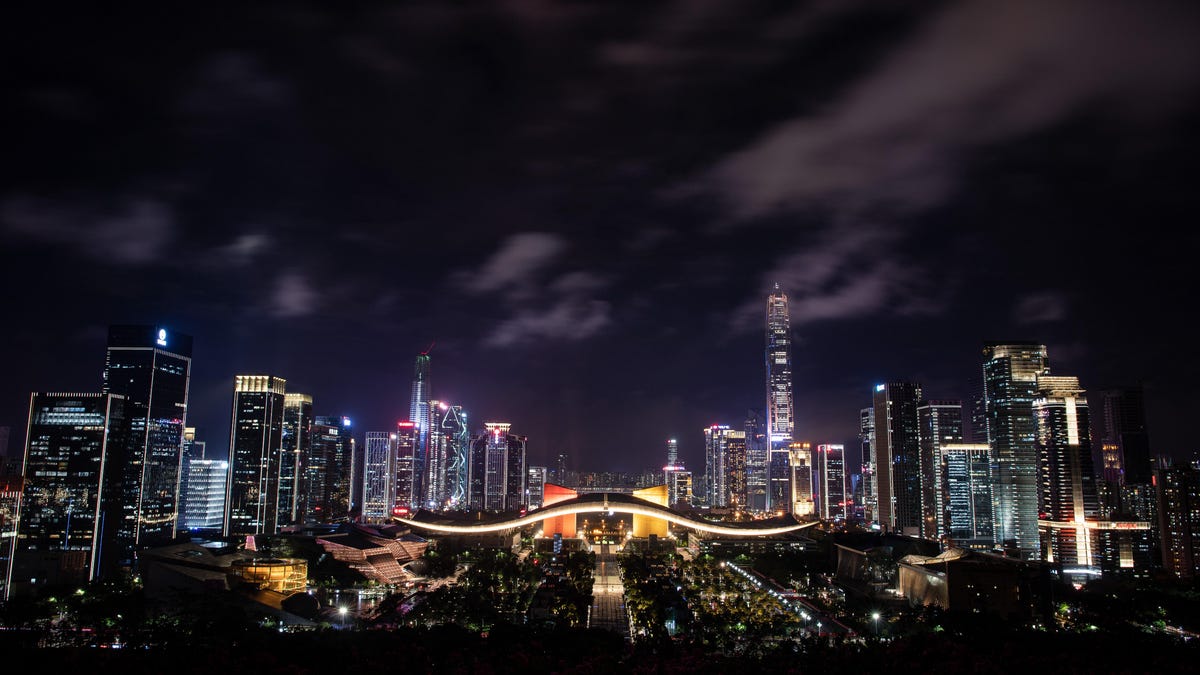China aims to dominate the biggest technologies in our lives
Generation China is a CNET series about how the country is staking out positions in big areas of tech, from 5G to social media, with players like Huawei and TikTok.

Shenzhen is one of the centers of innovation in China, particularly when it comes to telecommunications equipment.
An economic powerhouse pummeled by the coronavirus. A key trade partner. A competitive threat. An authoritarian government willing to censor its citizens and violate their human rights. China bears many labels depending on who -- or when -- you ask. But one thing that's clear is the world's most populous country and the second-largest economy has been steadily developing into a technological powerhouse that has the potential to upend the status quo.
China, once merely a manufacturer of commodity goods, has been on a mission to transform itself into a supplier of high-tech products, everything from electric vehicles to smartphones and 5G equipment, part of a 10-year plan called Made in China 2025 (It rarely references this plan publicly any more because it sparked concerns from other countries). The end goal is to use the country's full resources to catch up -- and eventually surpass -- the West in various technological fields, a move the White House has said "threatens not only the US economy but also the global economy as a whole."
China's growing power is a source of concern because critics say the country relies on everything from cyber espionage to reverse engineering and intellectual property theft to obtain its goals, which has fueled the years-long trade dispute between President Donald Trump's administration and the Chinese government. It's why the world's largest smartphone maker, Huawei , is a virtual unknown, having been shunned by the US government. You're seeing it now in the headlines, with Huawei and other Chinese-owned players like TikTok facing increased US scrutiny.
Generation China is a CNET series that looks at the areas of technology where the country is looking to take a leadership position.
Throwing a spanner in the works has been the impact of the novel coronavirus, which initially shut down significant parts of China before ravaging the rest of the world. The US is still unable to get a handle on the rate of new infections as the death toll tops 130,000, throwing into question how investment in new technology looks over the coming months.
It's with that nuanced and complex backdrop that CNET introduces Generation China, a series of stories looking at the various areas of technology in which the country is aims to dominate, everything from artificial intelligence and 5G, with more Chinese consumers buying next-generation smartphones than anywhere else in the world. The rise of TikTok has for the first time made China a global player in social media, with the US even considering banning the service here.
While we won't dive too deeply into the ever-shifting political back and forth between the US and China, the stories will look at how the work to develop these technologies informs the dynamic between these two nations.
And, to be clear, it's a dynamic that isn't as simple as two rivals duking it out. In many ways, the two countries are also dependent on each other.
"There is no doubt competition in the AI and 5G space, but also cooperation in many areas," said Sandy Shen, an analyst at Gartner, who noted that multinational companies have research centers and labs in China, where locals contribute to global projects.
- Our first story is a perfect example of this, poking holes at the so-called arms race between the US and China over the development of artificial intelligence. A closer look reveals that it's less a race and more years of leaning on each other for advancements, with only the tension of the last few years fueling a divergence.
- Our second piece looks at the growing rivalry between the two counties over the deployment and ownership of 5G technology, and how the coronavirus has allowed China to leap forward in consumer adoption.
- A third piece looks at the US considering a ban on social media breakout star TikTok, which is owned by a Chinese company, and whether such a move is even practical.
- We also look at the idea that China could build its own version of the internet, and the ripple effects it may have on the rest of us.
- Then there's Huawei, the smartphone and telecommunications equipment giant that's facing a wave of concern over the security of its products -- much of it raised by the US.
- Beyond Huawei, we look at some of the other Chinese smartphone makers and why you may want to pay attention to them.
They're worth a read. Because no matter your opinion on China, it's a country with technology that you can no longer ignore.

